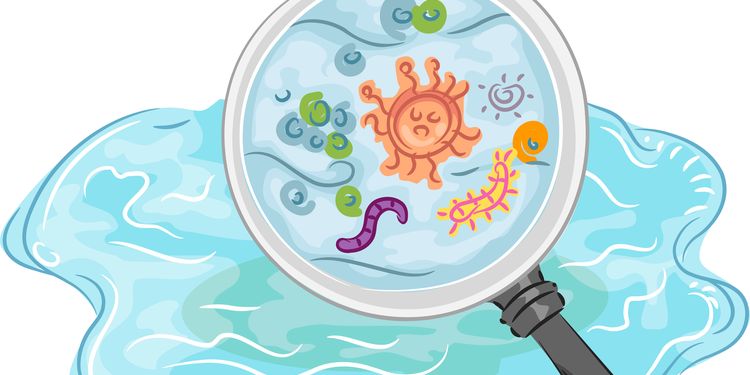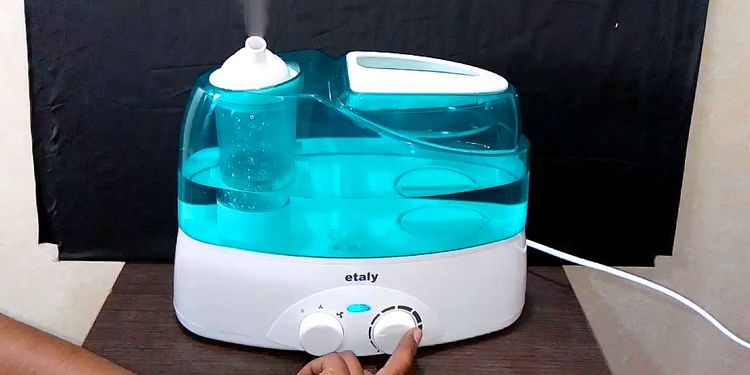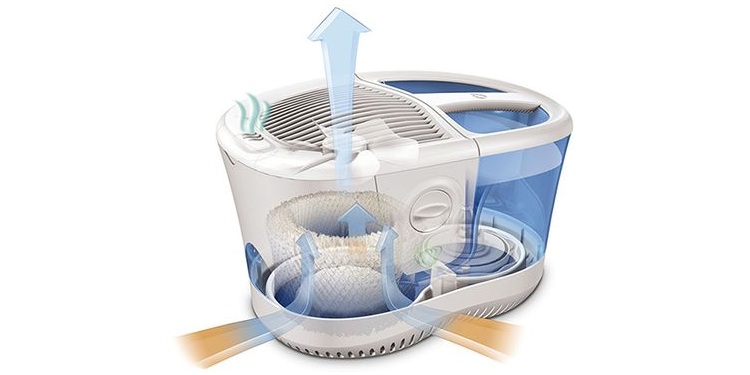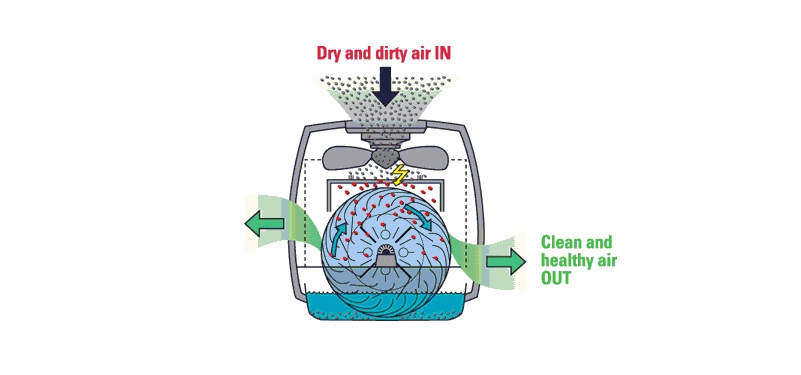Is a Humidifier Good or Bad for You?

Growing up, the humidifier was an essential tool in my family home.
Our humidifier was as used and useful as the toaster, dishwasher, or washing machine!
As I’ve gotten older, I’ve come to realize that this was (sadly) not normal. I meet people all the time who’ve never used a humidifier, and many don’t even know what a humidifier is!
If this describes you as well, let me tell you: you’re seriously missing out!
Humidifiers are amazing devices that can do wonders for your physical health and comfort.
So, I’m here today to introduce to you the wonders of the home humidifier.
Benefits of Owning a Humidifier
Humidifiers increase the humidity of the air in your home by pumping moisture into the air.
Not many people realize how detrimental dry air can be to your health.

Overly dry air can cause dry, flaky, faster-aging skin, nasal irritation, sinus problems, nose bleeds, coughs, and a higher risk of colds and the flu.
Humidifiers can mitigate all these issues! Just by putting moisture in the air and increasing the humidity of the air in your home, humidifiers can lead to:
- Softer, more vibrant-looking skin
- More moisturized, comfortable sinuses with less congestion
- Faster recovery from colds and flus by keeping your throat and sinuses moist and alleviating symptoms like coughing and sneezing
- Soothed vocal cords
- Reduced risk of static electricity shocks
- Better sleep, with less snoring and clearer breathing
- Reduced symptoms of sleep apnea
- Reduced risk of infections
Research has shown that airborne viruses and bacteria have a harder time travelling through moist air. One study showed that raising home humidity levels to 43 or above can reduce the spread of viruses through coughs from 70-77% to only 14%!
If you have air-cleaning indoor plants in your home, a humidifier can also contribute to cleaner air by keeping your plants healthy.

Potential Humidifier Cons
As helpful as they are, humidifiers aren’t perfect. They, like any device, come with their own issues.
Perhaps the largest issue associated with humidifiers is that they get dirty easily. The water in humidifiers often sits stagnant in a container, which can lead to dust or bacteria contamination. If the water is unheated, this of course can lead to you breathing in contaminated mist, which can cause bacterial infections.
Using tap water in a humidifier can also promote mineral buildup, which can encourage bacterial growth, and again, bacterial infection.
The good news is, you can significantly reduce the risk of bacterial infection by using distilled or demineralized water, regularly cleaning your device, and replacing parts (like wicks or filters) as necessary. You can also reduce the risk of infection by using a humidifier that heats the water before evaporating it.
Heating the water is certainly effective at keeping the water clean; however, it also increases the risk of burns if the device is spilled. Thus, you might want to consider avoiding these kinds of humidifiers if you have children.
Some humidifiers are also noisy, which can be annoying if you’re sensitive to white noise during the day or while sleeping.
Finally, if you’re not careful, humidifiers can moisten your home too much! Humidity levels higher than 50% can lead to mold and dust mite buildup. You can avoid over-humidifying your home by purchasing a hygrometer, which measures humidity levels.
Buyer’s Guide: What to Look for in a Humidifier
There are a few types of humidifiers— ultrasonic, air washers, evaporative, vaporizers, and warm mist— each with its own pros and cons.

Ultrasonic
Ultrasonic humidifiers work by vibrating a metal diaphragm at extremely high frequencies to turn water into a fine mist.
Pros:
- Highly energy-efficient
- Creates no noise; good for overnight use
- Water is usually kept cool, so there is no risk of spilling water and causing burns
- Family-friendly
- Sometimes comes with warm or cool mist option
Cons:
- Higher risk of water (and resulting mist) getting dirty and causing bacterial infections
- Higher risk of accumulating mineral dust, leading to inhalation and infection
- Needs to be cleaned regularly
- More expensive

Evaporative
Evaporative humidifiers use a fan to blow water over a wick, causing the water to naturally evaporate into the air.
Pros:
- Good for use in large rooms and open spaces
- Self-regulating and easy to use; they adjust to fit your home’s current humidity levels
- Water isn’t heated, so there is no risk of spilling water and causing burns
- Family-friendly
- Affordable
Cons:
- Internal fans make them noisy
- Use of cool water leads to higher risk of bacterial infections
- Wick needs to be changed regularly
- Prone to accumulate mineral dust

Air Washers
Air washer humidifiers contain rotating discs that both humidify and clean the water emitted.
Pros:
- Covers more space than any other type of humidifier
- Self-regulating and easy to use
- No risk of burns
- Purifies the air of large dust particles
- Little to no annual maintenance cost
- Long-lasting— up to 10 years
Cons:
- More expensive

Vaporizers
Vaporizers boil the water before emitting it. Some come with an added feature where the boiled water is cooled slightly before emission so that it comes out as a pleasantly warm mist.
Pros:
- Potential warm/cool mist options
- You can add medical inhalants to fight infection
- Less risk of bacterial infection
- Less risk of mineral dust build-up
Cons:
- Uses lots of energy
- Higher risk of burns
- More difficult to clean
Summary
If you live in a dry climate, like Arizona or Colorado, are especially susceptible to colds during the winter, or simply want softer skin, soothed sinuses and vocal cords, faster recovery from sickness, and less chance of getting sick in the first place, I highly recommend you invest in your health and buy a humidifier!
They’re easy to use and maintain, fairly inexpensive, and generally make your body a healthier, more comfortable place to be.
Just make sure to keep your children (and yourself) safe from potential spills and painful burns.
